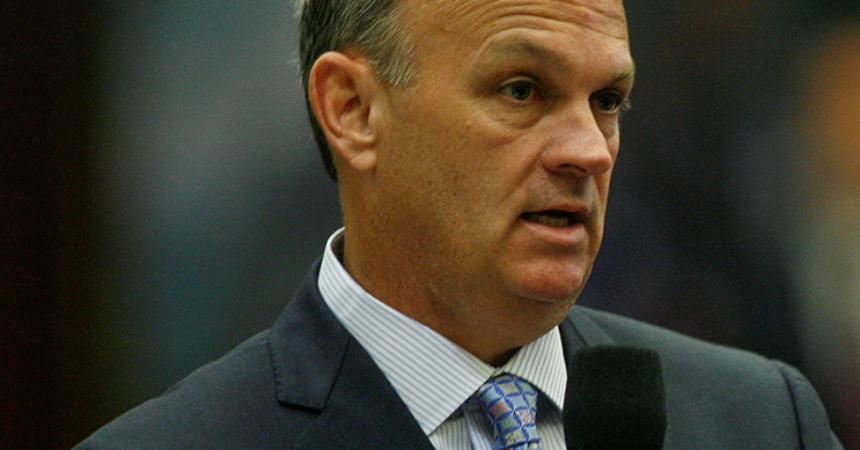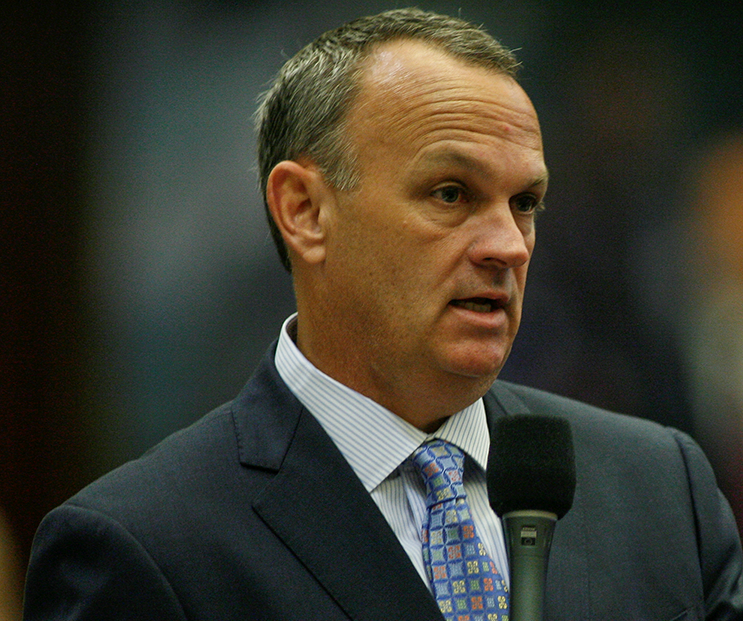
Education board to wade into history debate

By Ryan Dailey
News Service of Florida
The State Board of Education is set to vote this week on a proposal that would place strict guidelines on the way U.S. history is taught in public schools, but opponents argue the measure threatens to obscure the realities of historical events as part of a “culture war.”
The proposed rule would mandate that teachers “may not define American history as something other than the creation of a new nation based largely on universal principles stated in the Declaration of Independence.”
It also would require that teachers facilitating discussions couldn’t “share their personal views or attempt to indoctrinate or persuade students to a particular point of view” that is inconsistent with state standards.
Gov. Ron DeSantis and Education Commissioner Richard Corcoran have touted the proposed rule, billing it as a way to combat “critical race theory” in classrooms. Critical race theory is based on the premise that racism is embedded within American society and institutions.
“The Florida Board of Education is meeting, and they are addressing this,” DeSantis said last month during an appearance in Pensacola. “It’s offensive to the taxpayer that they would be asked to fund critical race theory, that they would be asked to fund teaching kids to hate their country and to hate each other.”
Corcoran, at a recent speaking engagement at private Hillsdale College in Michigan, told a crowd that “you have to police” teachers “on a daily basis” to ensure ideas like critical race theory aren’t taught to students.
The Florida Education Association, the state’s largest teachers union, opposes the rule. Union President Andrew Spar said in a statement that Florida students deserve the “truest and most inclusive picture of their world and our shared history.”
Christopher Weinrich, a teacher for 25 years who heads the Social Studies Department at Seabreeze High School in Daytona Beach, told The News Service of Florida that the proposal could lead to “inferior” history instruction.
“If you are looking at the early 1800s in American history, and a teacher is afraid to broach the subject of racism, does that mean they are going to then shy away from discussing slavery?” Weinrich said.
One of the courses Weinrich teaches is called “Global Perspectives,” with an objective to teach students to consider issues from multiple viewpoints. He said “inevitably” in class discussions, students will ask for his opinion — and as a teacher, he knows how to use it as a teachable moment.
“All students know that teachers have opinions. What some teachers will do is simply turn it around and say, ‘It’s really not important what I think; rather, what do you think?’ And then, ‘What’s the counter-argument to what this person just said?’ And, you know, you can facilitate discussion in that way,” Weinrich said.
Imposing a rule that Weinrich described as “limiting” could compromise the basis for teaching social studies, he said.
“That’s really the point of studying history and these other social sciences, is that as human beings, we need to come to conclusions about the world around us. And if there are subjects that are taboo, or if there are ways of thinking that are forbidden, we’re not getting the full picture. I believe that is very dangerous, as a society, for us to ignore one or more aspects of looking at an issue,” Weinrich added.
The proposal also has drawn criticism from Democratic state lawmakers.
“I think they were smart not to try to put it into statute, because they would have been roundly ridiculed if it had to go through the legislative process. And the flaws of this idea would pretty much be laid completely bare,” said House Minority Co-leader Evan Jenne, D-Dania Beach. “So I understand why they want to do this through rule.”
Jenne told the News Service that he hasn’t “seen anything credible that there is large-scale indoctrination” in any Florida schools, from conservative or liberal points of view.
“This idea of indoctrination, it just plays all into the culture wars that are continually being pressed in Tallahassee,” Jenne said.
The State Board of Education is scheduled to meet this Thursday at Florida State College at Jacksonville. The proposed rule would be adopted if the board, made up primarily of DeSantis appointees, votes to approve it.
The Florida Department of Education defended the proposed rule in an email to the News Service, describing it as “straightforward and populated by widely accepted universal principles of the Socratic method and quality educational processes.”
“It is important to understand that Florida schools are a place that students are taught how to think, not what to think, and discuss the founding principles of our nation, not disseminate propaganda,” the department wrote.
The department also wrote that the proposal “creates a logical means for … great teachers to defend their actions if ever falsely accused.”







